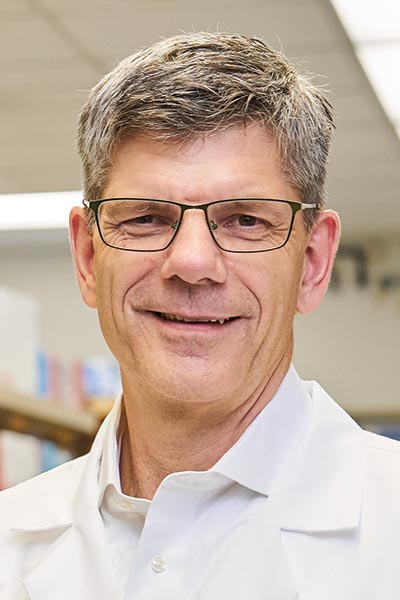Special session will explore mechanistic insights into cancer emerging from tumors with simple genomes
//
Estimated Read Time:
In recent years, science has made several advances in the understanding of the key mechanisms driving cancer. During the session The Nature of Cancer: Lessons Learned from Tumors with Simple Genomes, a panel of experts will discuss mechanistic insights into the nature of cancer now emerging from studies of tumors with simple genomes. The session will be on Monday, April 8, from 5 – 6:30 p.m. PT in Ballroom 20 CD on the upper level of the San Diego Convention Center.
Cancers frequently have a scrambled genome, which might make one come to the conclusion that a scrambled genome is a fundamental characteristic of the disease.

“And yet there are cancers, often rare, that have extremely simple diploid genomes, potentially with only a single driver mutation. If cancer is a disease of a scrambled genome, how can it be that you get highly aggressive cancers that have simple genomes?” asked session chair Charles W. M. Roberts, MD, PhD, Comprehensive Cancer Center director and executive vice president at St. Jude Children’s Research Hospital.
Roberts said studies of cancers with simple genomes can yield transformative insight into the fundamental nature of cancer, reveal the essential mechanistic events required for the genesis of cancer and highlight central vulnerabilities.
“For example, study of the pediatric cancer retinoblastoma revealed not only the Rb gene but also the existence of tumor suppressor genes, both subsequently recognized as features that are relevant to many cancers,” he said. “In this session, we are going to present key insights that emerge from studying cancers with simple genomes that we think are broadly applicable across cancer.”
Roberts will begin the session by discussing the fundamental nature of cancer and the role of dysregulated transcription control. He will be followed by Kimberly Stegmaier, MD, Dana-Farber Cancer Institute, who will, in part, discuss the emerging Goldilocks principle of cancer, which proposes that cancers are in “just the right” state for cancer-cell survival and yields novel nonintuitive approaches to therapy. Stefan M. Pfister, MD, of Hopp Children’s Cancer Center Heidelberg (KiTZ), Germany, will discuss lessons learned from pediatrics about the genesis of cancer. The session will conclude with a panel discussion.
“As we begin to understand the key mechanisms that drive cancer, we will also learn keys to therapeutic targeting,” said Roberts. “Studying these outlier cancers will help us understand the mechanisms of cancer and inform how we think about therapeutic intervention.”
Roberts expects this session to appeal to a broad audience, including attendees interested in the fundamental nature of the mechanisms that cause cancer and anyone thinking about leveraging those mechanisms for therapeutic insights.




